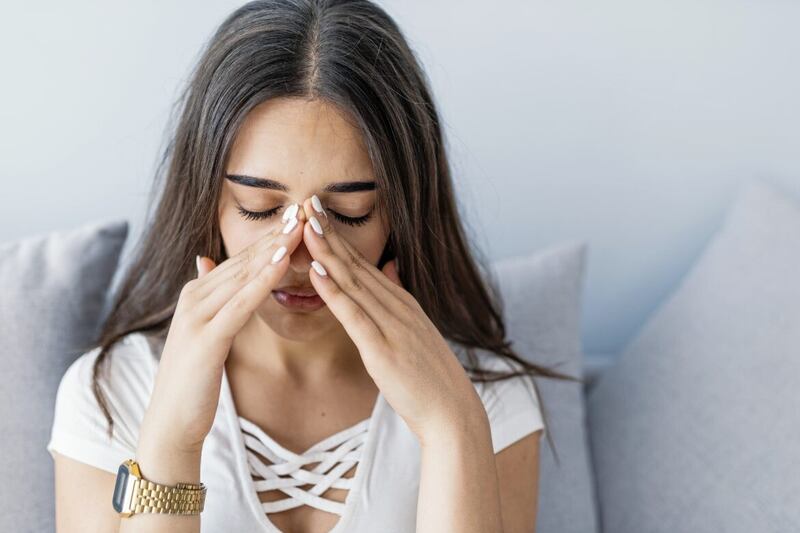EVER had what seemed like a bad case of the sniffles, only for your face to suddenly descend into horrible pain, as intense pressure builds around your eye sockets and nose?
It might have been sinusitis – "an infection or inflammation of the air-filled sinus cavities surrounding your nose," says GP and Healthspan medical director, Dr Sarah Brewer of Healthspan.co.uk.
"You have four pairs of sinuses," she explains.
"The frontal sinuses over your eyes; the ethmoids between your eyes; the sphenoids in the upper part of your nose behind your eyes, and the maxillary sinuses inside your cheekbones.
"These help to lighten the bones of the skill and improve the resonance of your voice. They also act as a safety 'crumple zone' to absorb blows to the face."
Some people suffer with chronic sinusitis, though this is somewhat different from having an acute infection, explains Mr David Howe, an ear, nose and throat consultant surgeon at Solihull's Spire Parkway Hospital.
"Sinus infections arise from a combination of blockage within the sinus and infection forming within it," he explains.
"This obstruction of the tiny ducts that drain the sinus into the nose leads to the symptoms of pain, pressure and congestion that people report with acute sinusitis.
"Chronic sinusitis is a rather different condition and, in Britain and Ireland, is often associated with nasal polyps. This tends to cause patients to have a very blocked nose, loss of smell and recurrent discharge from the nose.
"It can affect men or women but is certainly more common in people who have asthma, cystic fibrosis or aspirin sensitivity."
So, how come sinus infections can be so painful?
"The lining of your sinuses secretes a thin, watery fluid that continually washes them clean. When a sinus is inflamed, it swells and produces larger amounts of mucus, so the fluid becomes thicker and more profuse.
"If the narrow drainage channel from a sinus becomes blocked by swollen tissue or mucus, the secretions remain trapped and pressure builds to cause a throbbing pain between the eyes, in the cheeks, headache and/or pain in the upper teeth," explains Brewer.
"You may develop tenderness over the sinus, with swelling and redness of overlying skin. If the infection's severe, pus will pool in the sinus and you will develop a fever.
"Some pus may drain out through the nose to cause increasing pain and a constant, nasal discharge that drops into the back of the nose. This triggers a cough and tastes foul."
Acute sinusitis, she explains, typically lasts up to three weeks – although the 'acute' very painful phase should hopefully ease long before that.
"It is normally the aftermath of a cold or flu infection, and can occur after lots of flying," Brewer adds.
You don't always need antibiotics, however it's important to see a doctor if the acute symptoms don't improve and seek medical attention if your symptoms become severe – for instance, a very high fever, redness around the eyes, a stiff neck, confusion and vision changes.
Infections will normally clear up by themselves, and regular painkillers like paracetamol, plus over-the-counter decongestant tablets and nasal drops or sprays – ask your pharmacist which ones are suitable – can help ease symptoms.
Steaming can sometimes help too: "Warm face packs placed over your sinuses can be comforting and reduce pain," says Alison Cullen, nutritional therapist for Avogel.co.uk.
Howe explains: "Antibiotics are rarely needed, unless the patient becomes toxic or gets frontal headaches, suggesting a frontal sinusitis.
"Also, if the acute episode lasts more than a few days, then antibiotics might be appropriate."
You can't completely guard against sinus infections, but doing your best to avoids colds and flu will help, along with keeping generally well – with a balanced diet, regular physical activity, good sleep and keeping stress levels in check – to help support your immune system.





